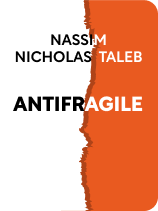

This article is an excerpt from the Shortform book guide to "Antifragile" by Nassim Nicholas Taleb. Shortform has the world's best summaries and analyses of books you should be reading.
Like this article? Sign up for a free trial here .
What is the meaning of optionality? How does optionality work and how can it improve choices and outcomes?
A key aspect of antifragility is having a variety of choices available. Having many options maximizes your chances of achieving success in most situations, whether it’s political, economic, or another type of system.
Read more about optionality, its meaning, and how it relates to antifragility.
Rationality and Optionality Meaning
As stated in the previous chapter, optionality—meaning having a variety of choices available—is one key aspect of antifragility. An anecdote in Aristotle’s Politics shows this, although, oddly, Aristotle seems to have gotten exactly the wrong point from his own story.
The philosopher Thales of Miletus was known to be poor and unconcerned with money. However, those around him suspected that the reason for his apparent lack of interest in money was that he simply didn’t have the skill or intelligence to make any. Thales decided to prove them wrong.
He rented out every olive press in the area, which he was able to do at a fairly low cost. The olive harvest that year was especially good, and there was great demand for olive presses. Therefore, Thales was able to make a huge profit by renting the machines back to their owners, on his own terms. Having made his point (and his money), Thales returned to philosophizing.
Aristotle argues that Thales’s knowledge was what made this possible—that he studied the stars and learned through astrology that the harvest would be a bountiful one. However, the truth is the exact opposite; it didn’t matter how good the harvest was, because Thales was practicing optionality.
With a relatively small investment, he gained temporary control of every olive press in the area. If the harvest that year had been poor, he could have simply held onto the presses and wouldn’t have been out too much money. Since the harvest happened to be excellent, he sold the rights back and made a tidy return on his small investment. In short, Thales had options, and because of that, the randomness of the harvest worked in his favor.
This is one example—possibly the oldest one recorded—of optionality leading to antifragility.
Options Maximize Upsides and Minimize Downsides
Remember that the basic pattern of antifragility is to have more upside available than downside—that being the case, on average you’ll gain more than you lose from random changes. The best way to make sure that happens is to have options available to you, so you can make the best choice at any given time.
This principle applies even in very mundane situations. For example, someone invited to a dinner party that isn’t especially interesting, but is better than eating alone, might call around first to see if any other friends are available that evening. If a more interesting opportunity presents itself, the person can skip the party and do that instead. If not, the party is available as a fallback option, with the key word being option. This person has very little to lose—at worst, he winds up at a party that’s rather less exciting than he’d hoped. At best, he finds something more fun to do and has an excellent evening.
Another person who benefits from optionality is any tenant in a rent-controlled apartment. This person can stay in the apartment for as long as he wants, largely protected from inflation. On the other hand, if rents in town somehow drop—or if the tenant suddenly decides to start a new life in Mongolia, or what have you—leaving the place is a fairly easy matter. All he has to do is notify the landlord a given number of days in advance and start packing.
The key in both scenarios is that the person in question has the option—but not the obligation—to stay in his current situation. There’s no risk that things will get worse, and if he happens to find better offers elsewhere, he’s able to take them. Also in both situations, there’s minimal cost for the options. The person looking for a fun evening is only out the time and effort of calling some friends, while the tenant only needs to keep paying the same rent he always has. Therefore, in both cases, there is a significant chance for improvement with little risk or cost.
Options Love Dispersion
Now that you know the optionality meaning you can think more about how it works. Because of the high chance of benefits and limited downsides, options love dispersion—that is, they like being distributed across a large number of possibilities and outcomes. The negative outcomes don’t matter nearly as much as the positive ones, because when you have options available you simply don’t choose the negative outcomes.
This is another reason why things like art and ideas are antifragile: There’s no downside to people not liking them. People who hate a certain book can’t give the author negative sales, and people who find an idea distasteful can’t rip it from the heads of other people. For artists and authors, therefore, it’s actually better to have a small but devoted following, regardless of how many haters their work also attracts.
Having people’s opinions distributed in this way, from total contempt to adoration, is a net benefit for the artist. The worst possible thing for such people is to have everyone find their work acceptable, or “just okay,” because people don’t tend to buy things that are just okay.It’s likely that dispersion is also how society will make progress. Societal improvements won’t happen by raising the average intelligence or education level of the population; they’ll occur because a few rare people have the imagination and courage to make that progress happen. Their outcomes will be distributed from utter failure to resounding success, and this is the key: The failures will not harm society at large, while the successes will benefit it.

———End of Preview———
Like what you just read? Read the rest of the world's best book summary and analysis of Nassim Nicholas Taleb's "Antifragile" at Shortform .
Here's what you'll find in our full Antifragile summary :
- How to be helped by unforeseen events rather than harmed by them
- Why you shouldn't get too comfortable or you'll miss out on the chance to become stronger
- Why you should keep as many options available to you as possible






